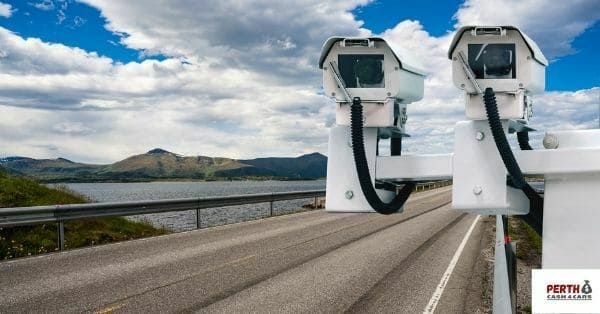Since we all have to do numerous tests before we’re allowed behind the wheel of our cars, it’s weird to think how many of us have such differing beliefs about driving. While thankfully there’s a lot of very clear information on how to scrap your car, there are plenty of old wives tales, outdated guidance, and half-remembered rumours that can sometimes colour our perceptions, and what we think is allowed. So this week here at Scrap Car Network, we’re putting the kibosh on a few of the most common ones!
Myth: if a speed camera doesn’t flash, you won’t be prosecuted
It’s immediately easy to see why this myth is so widespread – many of us are watching speed cameras so closely for those telltale flashes that it can be easy to assume that if we don’t see them, the devices aren’t recording their findings. But actually, speed cameras have developed a lot in the past few years, and now the vast majority use infrared to capture speeders. (And to nip something else in the bud – changing lanes as you pass them won’t fool the cameras either. It’s a minor loophole that used to exist for the very early models, but they’ve moved on a bit since then.) So, much like your most disapproving neighbours, even if you can’t see any signs of movement it’s best to just assume they’re always watching and judging.
Myth: speed cameras have a 10% tolerance
This is another very pervasive myth, but unlike the one we outlined above, it may still have some slight basis in truth. Basically, the idea is that all speed cameras have some wiggle room in them, so that you won’t get prosecuted if you’re doing 33mph in a 30 zone, or 66mph in a 60 zone. As to whether it’s true, the honest answer is that it’s a little hazy, and probably depends a lot on exactly where you’re driving.
Recently, Auto Express attempted to find out once and for all if the 10% tolerance is actually a thing, and posed that question to 45 police forces. 33 of those responded, and only 25 revealed the margin. Most said that their tolerance is 10% plus 2mph, which means in theory you could do 35mph in a 30mph zone.
It’s also worth stressing that even where the 10% tolerance exists, it’s as guidance only, and police forces place far more emphasis on an individual officer’s judgement. So while in some areas of the country, a speed camera might let you push it a few mph over the limit, just a few miles up the road an officer with a radar gun might come crashing down on you like a tonne of bricks for doing exactly the same (slightly excessive) speed. Speed limits exist for a reason on every road, and though cameras might seem annoying in principle, RAC research from as recently as 2016 showed that they tend to decrease deaths and serious injuries by as much as a third in areas where they’re deployed. What we’re saying is that we wouldn’t recommend testing this 10% tolerance theory for yourself!
Myth: you can’t be prosecuted for driving too slowly
As drivers, if ever we face any sorts of uncertain or potentially hazardous situations, we’re always advised to be cautious. But there’s a big difference between a sensible reduction in speed, and slowing to a dangerous crawl. You absolutely can be prosecuted for driving too slowly, and if you’ve ever almost been involved in a rear-end collision, you’ll know exactly why. If you’re doing 70 on a motorway, you can reasonably expect everyone else to be doing something in the region of that speed too. But if you suddenly find yourself approaching someone who’s doing about 30 for no conceivable reason, the chances are that you’ll probably have to slam on your brakes – so you can see how something like that could all too easily lead to accidents.
In a nutshell, slow drivers aren’t just inconvenient and annoying, but they can easily become a hazard which catches other drivers off guard. Because of that, police forces tend to be on the lookout for dangerously slow drivers just as they’re on the lookout for dangerously fast ones – in many ways, both have equally destructive potential!
Myth: you can have one drink and drive
This is a bit of a tricky one, because it’s sort of true for some people and not for others.
The thing is that individual limits vary from person to person. If you drink yourself, you’ll probably already have a vague idea of how your limits compare to that of your friends or family. The rate at which you get drunk is affected by a wide variety of factors, including weight, metabolism, gender and how much you’ve eaten or exercised that day, or how tired you are. It also obviously depends on what you’re drinking – one given pint can be drastically stronger than another, depending on the proof of the alcohol in it. So what’s the best way to tell? Easy – don’t drink anything at all!
Myth: you can make an illegal manoeuvre if you’re making way for an emergency vehicle
Nope. Massive nope to this one. While obviously the rules of the road are a bit more flexible for vehicles responding to an emergency, that doesn’t mean they are for anyone else. Moving into a bus lane, stopping in a yellow box junction, driving through a red light, or completely mounting a kerb are all solid examples of what you’re not allowed to do when making way for a police car or an ambulance.
If you’re given a specific, direct instruction by a member of the emergency services then that’s another matter, but you should never do anything you know to be illegal purely off your own initiative. A developing hazard is a developing hazard, so you should always try to avoid becoming one whatever your reasons for doing so!
Moving forward into junctions or busy traffic is a reasonably common ill-advised action that good-intentioned drivers sometimes take, as they try and free up room to move for an emergency vehicle caught in traffic. Don’t forget though that emergency services drivers have been trained for such eventualities, and if you can’t move forward safely then let them worry about it, not you. More often than not, they would much rather wait for a few moments in heavy traffic rather than risk another emergency situation happening right in front of them!
Alternatively, if you’re ready to scrap your car, you can do so with an equal minimum of fuss and hassle.
At Perth Cash 4 Cars, we pay the highest price for any vehicle, at any time throughout Perth. Same day payment & removal guaranteed!
If you are in Yangebup and looking for Perth Cash 4 Cars, below is the best way to visit us.


